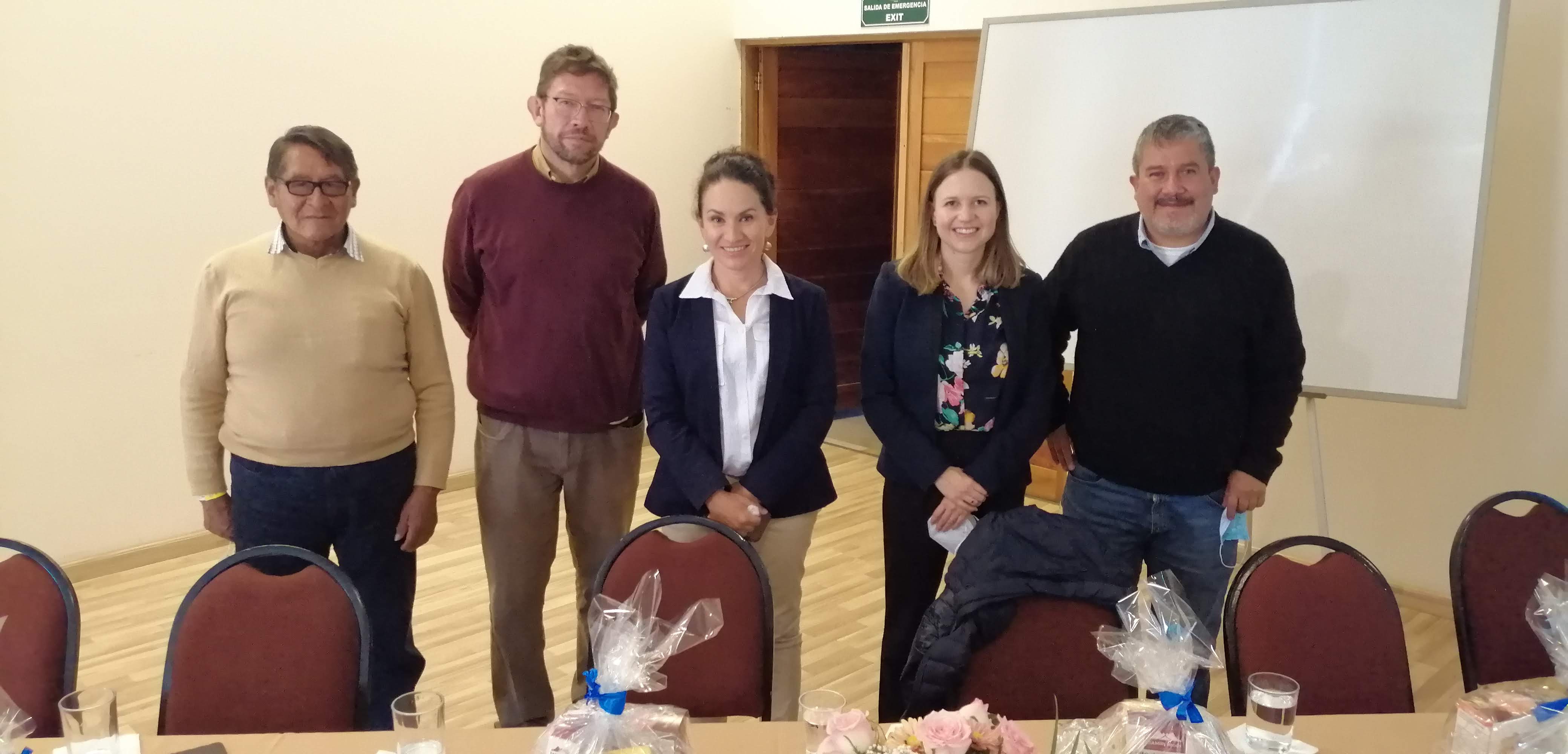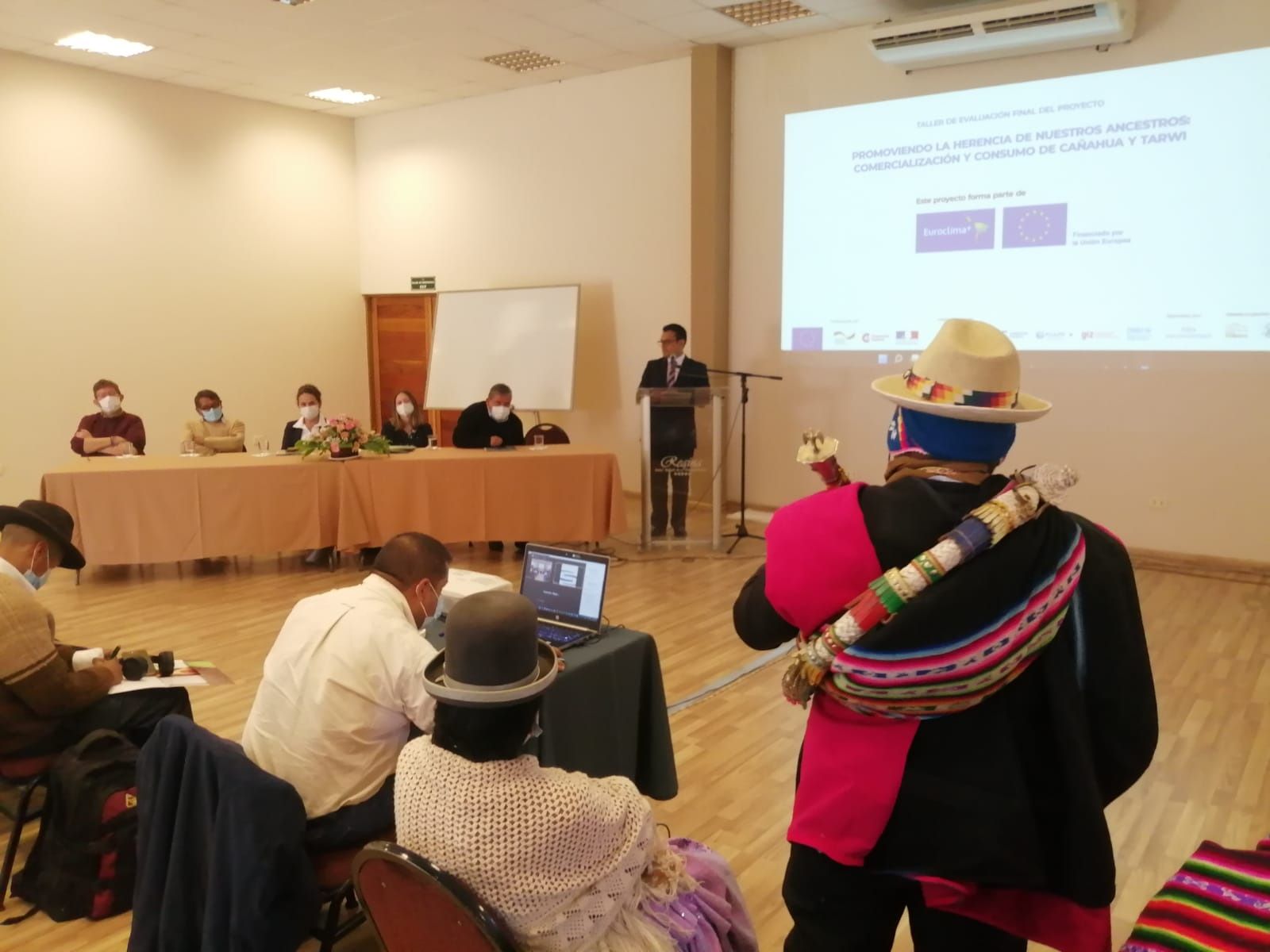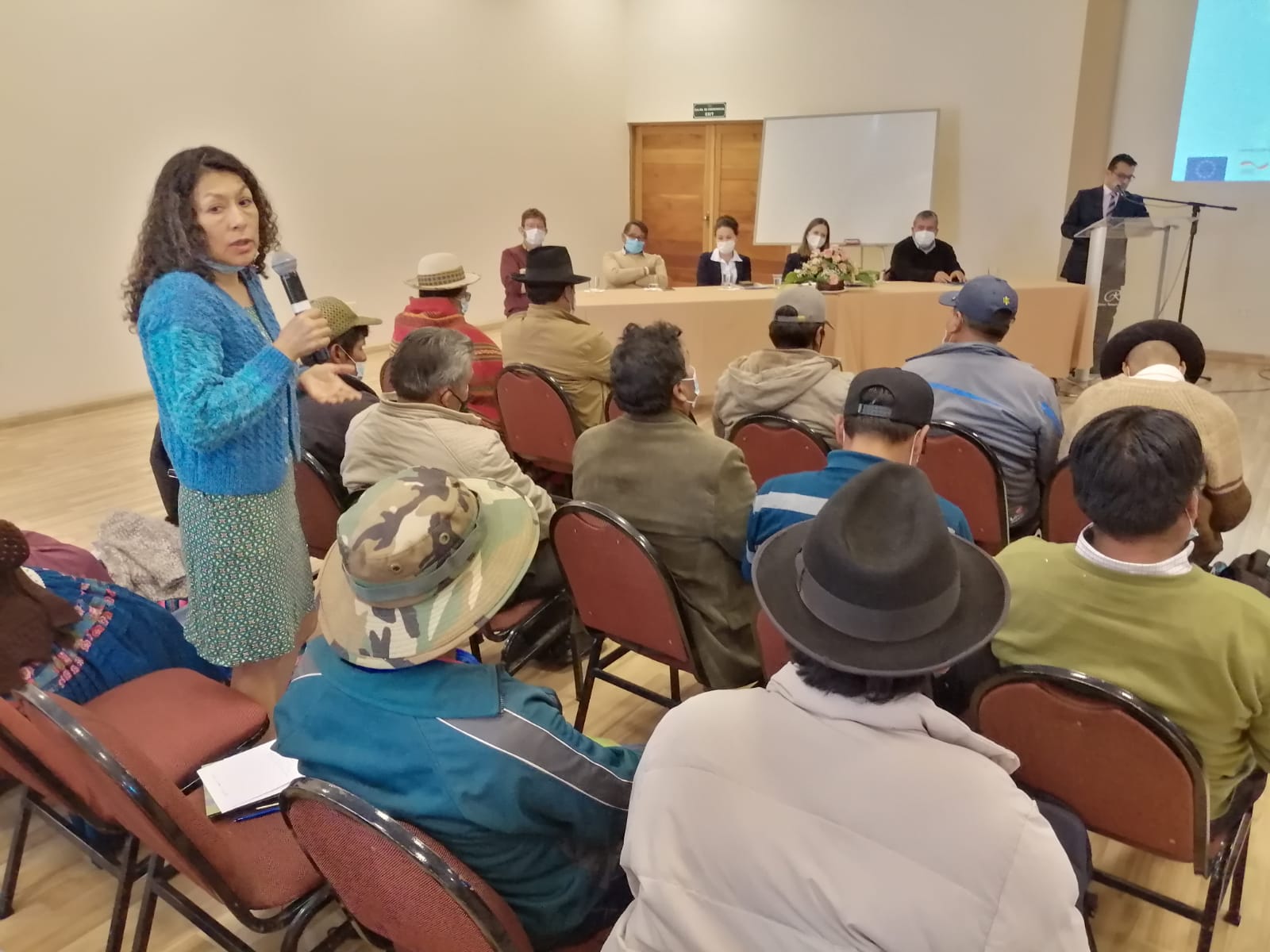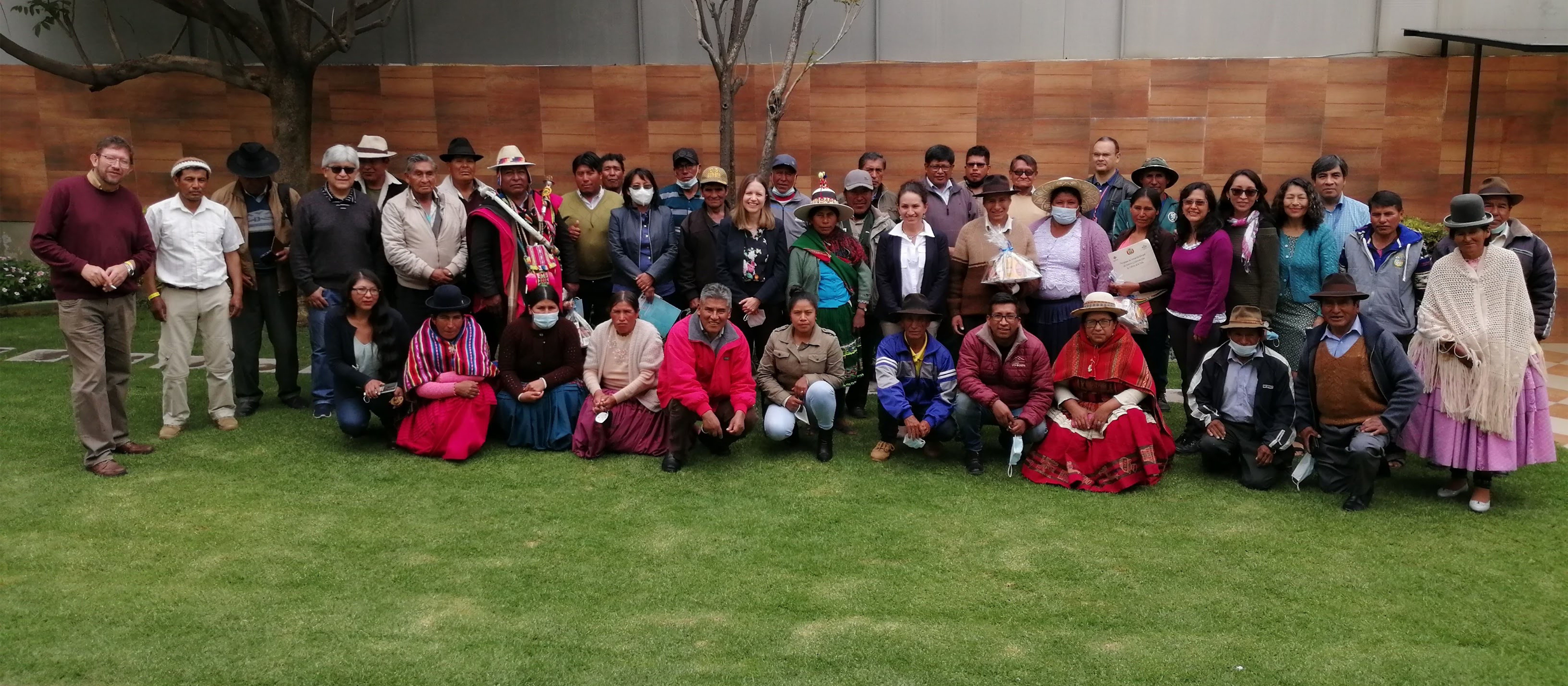02 March 2021 - In the framework of the project Promoting the Heritage of Our Ancestors: Resilient Production, Marketing and Consumption of Cañahua and Tarwi,
a project that is part of the Euroclima+ programme, financed by the European Union, implemented by Swisscontact and co-implemented by Proinpa, the closing event was held on 17 December 2021 in the city of Cochabamba Bolivia with the presence of beneficiaries, funders and implementers of the project.
The project lasted 30 months and supported more than 1,200 families producing cañahua and tarwi in Bolivia and Peru. It also strengthened micro-enterprises that transform tarwi and cañahua with training, business plan development, equipment and experience exchanges between local and international producers with commercial innovations to be linked with other companies, to boost production and strengthen the market.
Watch the video of the project's closure
Results
The project was implemented in 4 municipalities of Bolivia; Jesús de Machaca, Acasio, Anzaldo and Caquiaviri; and in 2 municipalities of Peru; Zepita and Yunguyo of which 1,504 families received resilient seed in the 2019 to 2021 campaigns, more than 7 tons of resilient seed delivered in two agricultural campaigns, 304 hectares were planted with Cañahua and Tarwi in the two agricultural campaigns, benefiting 613 families who increased their yields of Cañahua and Tarwi crops by more than 10%.
In Bolivia at least 10 Best Agricultural Practices were disseminated and in Peru, workshops on breeding, which has enabled families to adapt to climate change, through training and technical assistance to help improve their resilience. The 41 workshops held on diversified use promoted greater family consumption. Three resilient Cañahua varieties and two Tarwi varieties were registered.
 |
Around 2,774 people in Peru and Bolivia were trained to cope with the effects of climate change, improving their resilience capacities promoted by the project as part of Euroclima+ actions and 720 resilient Cañahua and Tarwi producing families in Bolivia and Peru increased their crop yields by expanding the genetic base and best agricultural practices to reduce their vulnerability.
Testimonies
Claudia Cordero Lorenzetti – GIZ Regional Advisor for Euroclima+
“I congratulate the project implementers for the important results obtained despite the difficult conditions we have experienced with the pandemic due to COVID, they have continued the implementation with great commitment, often managing to exceed the indicators proposed in its 4 goals, including the integration of subnational policies, the promotion of these ancestral crops of tarwi and cañahua to promote a healthier diet for the population".
Walter Manuel Chambi – Chuyma Aru Field Coordinator in Peru
“With the project we have achieved many good things, the results tell us that we are making strong progress because ancestral knowledge has been practised for millennia and now we are using this knowledge to move forward with the production of cañahua and tarwi"
 |
Zenobio Inda Velasco – president of the APECAJJA Association in Bolivia
"As producers we feel quite satisfied because we have learned best practices from the preparation of the land, planting and harvesting, now we have a secure market, now we can plant more cañahua. We want to thank the project for strengthening us, it has linked us with companies and the market"
About the project "Resilient Heritage of the Andes Cañahua and Tarwi"
The project "Resilient Heritage of the Andes Cañahua and Tarwi" promotes the resilience of rural farming production systems in the Bolivian and Peruvian Altiplano, strengthening the Cañahua and Tarwi production complexes by improving the production, marketing and consumption of superfoods that are part of the food heritage of both countries, benefiting 1200 producer families. The project also prepared the EUROCLIMA+ Green Solution Quechua and Aymara Communities implement technological and ancestral solutions in the crops of Cañahua and Tarwi in the Andes of Bolivia and Peru.
More information
Pablo Jesús Rossendy Roja, Communicator of the EUROCLIMA+ Project - "Resilient Heritage of the Andes, Cañahua and Tarwi", This email address is being protected from spambots. You need JavaScript enabled to view it.
Resilient Food Production Sector, This email address is being protected from spambots. You need JavaScript enabled to view it.
 |
Photo sources: Project closing event
About Euroclima+
EUROCLIMA+ is a programme funded by the European Union and co-financed by the German federal government through the Federal Ministry for Economic Cooperation and Development (BMZ), as well as by the governments of France and Spain through the Ministry of Foreign Affairs, European Union and Cooperation.
The Programme's mission is to reduce the impact of climate change and its effects in 18 countries in Latin America and the Caribbean, promoting mitigation, adaptation, resilience and climate investment. It is implemented according to the "Spirit of Team Europe" under the synergistic work of seven agencies: the Spanish Agency for International Development Cooperation (AECID), the French Development Agency (AFD), the Economic Commission for Latin America and the Caribbean (ECLAC), Expertise France (EF), the International and Ibero-America Foundation for Administration and Public Policy (FIIAPP), the German Society for International Cooperation (GIZ) GmbH, and the UN Environment Programme (UNEP).



